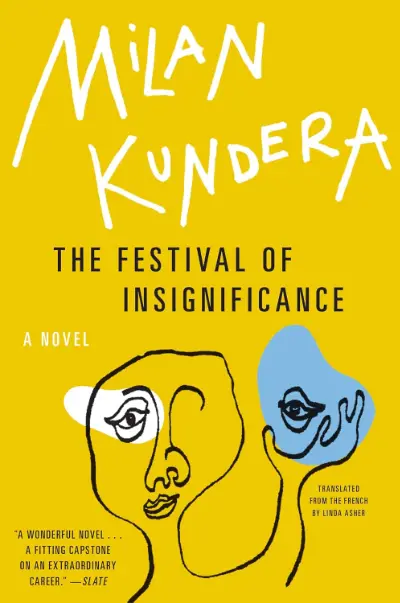The Festival of Insignificance

Kundera introduces the notion of insignificance as a central theme, suggesting that the trivial moments in life often hold greater meaning than grand events. The characters engage in witty conversations about love, politics, and personal histories, revealing their struggles with identity and the search for a deeper understanding of themselves. The story is punctuated with philosophical digressions, touching on laughter as a response to life's absurdities and how individuals cope with the weight of existence.
One significant aspect of the novel is the juxtaposition of personal insignificance against the backdrop of historical events. Kundera reflects on the impact of history on individual lives, especially in the context of his native Czechoslovakia. The characters’ discussions often allude to past political upheavals, exploring how these events shape their perceptions of freedom and authenticity. Kundera suggests that while individuals may feel insignificant in the grand scheme of history, it is in their lives and relationships that true meaning is found.
Stalin and Khrushchev are characters who help explore the ideas of Kant and Schopenhauer. Sometimes, the narrator jumps in to comment on what a character said in a previous chapter.
Alain, for instance, embodies a sense of detachment, often viewing life with irony. His relationship with Clara highlights the tension between desire and the fear of intimacy. On the other hand, Clara is more emotionally invested, longing for connection while grappling with her insecurities. The dynamics between these characters serve as a microcosm of larger existential questions, illustrating how individuals seek connection in a world that often feels indifferent.
The motif of insignificance also extends to the concept of the “festival,” which symbolizes the moments of joy and celebration that arise amidst life’s trivialities. Kundera evokes the idea that these seemingly inconsequential events—laughter, love, and shared experiences—offer a reprieve from the burdens of existence. Through humor and playfulness, the characters find ways to embrace their insignificance, celebrating life in all its absurdity.
As the story unfolds, Kundera deftly weaves together the characters' lives, creating a tapestry of interconnections that highlight the complexity of human relationships. Each character's quest for meaning becomes intertwined with the others, underscoring the importance of community and shared experiences. The narrative's fluid structure allows for moments of introspection and lively exchanges that reveal the characters’ vulnerabilities and aspirations.
I've read The Unbearable Lightness of Being, and there are echoes of it in this, the author's final novel.